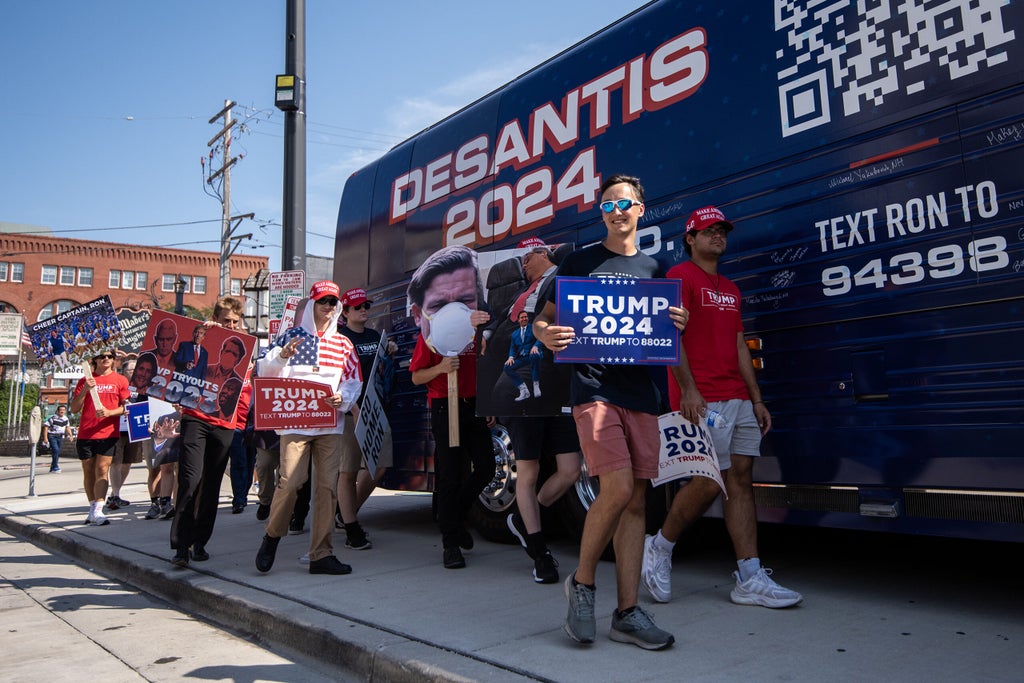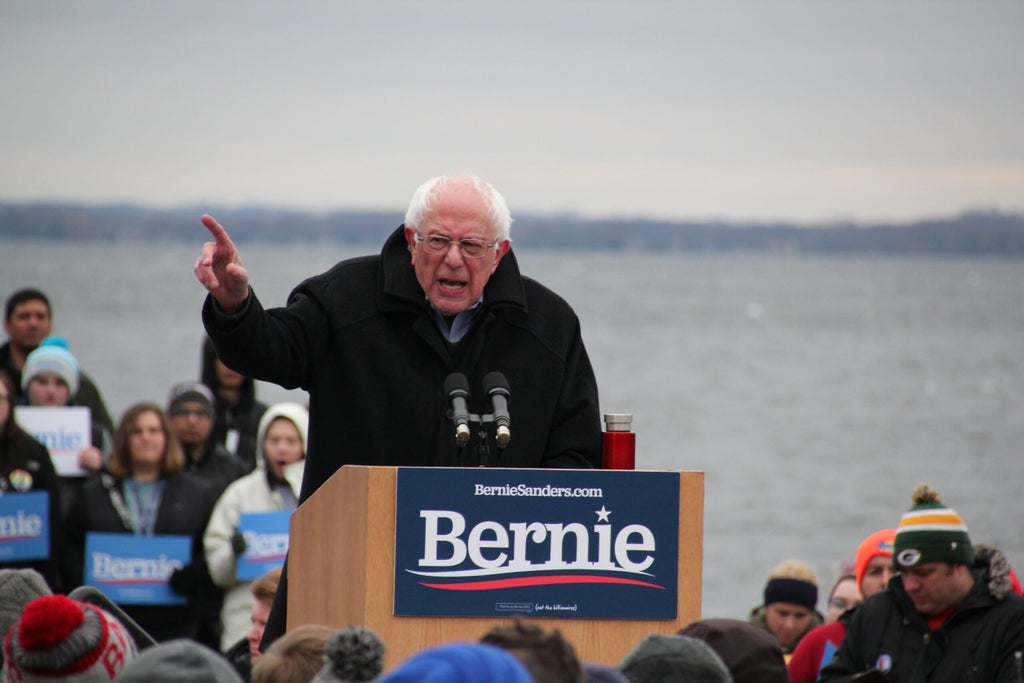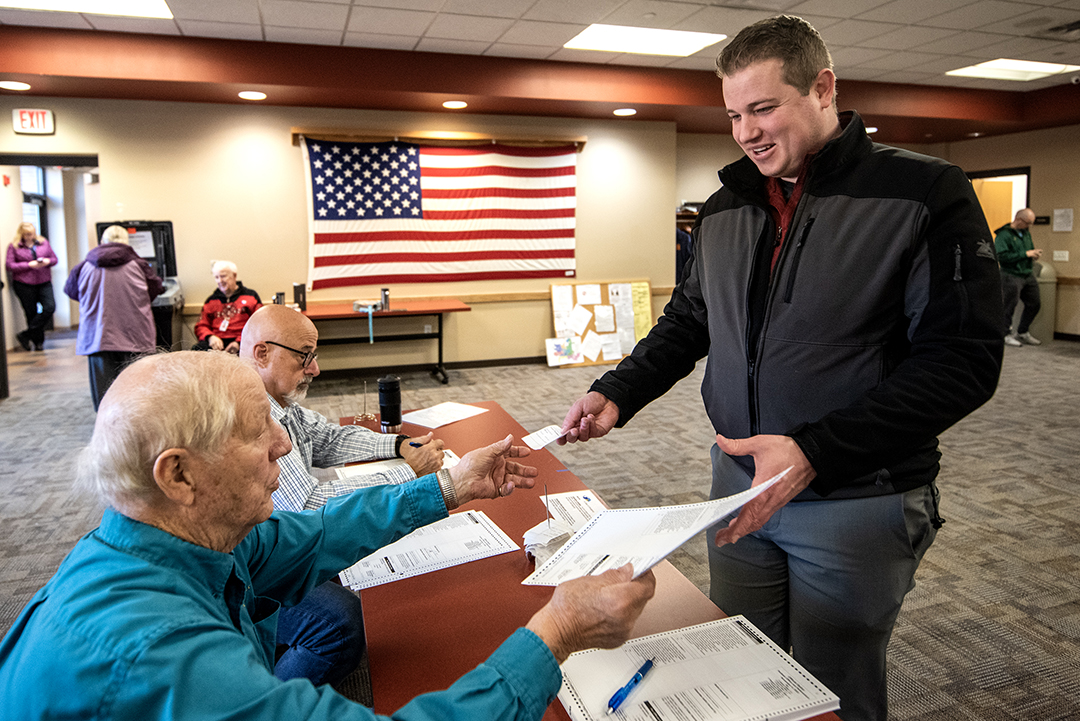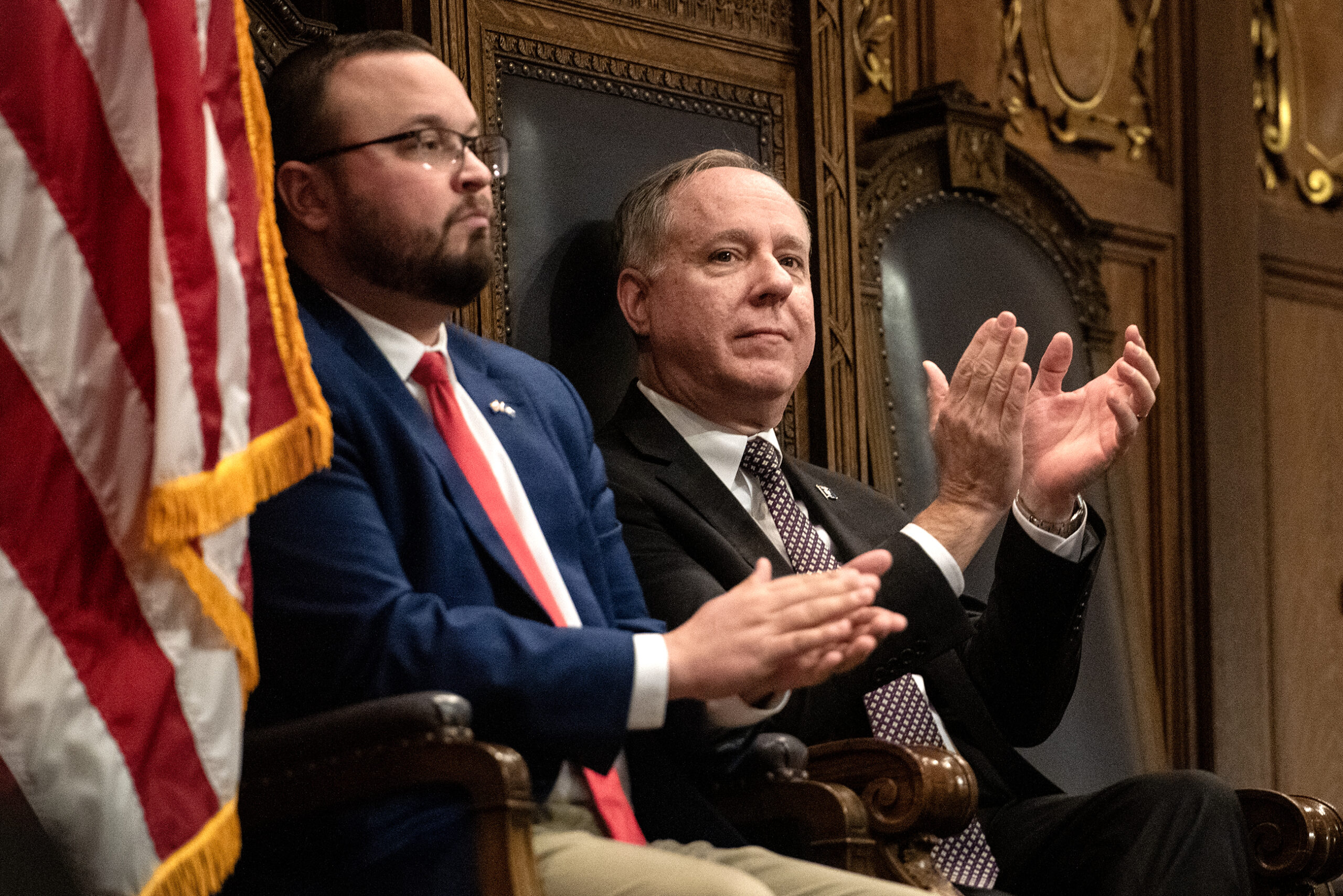While presidential primaries began this week with the Iowa caucuses, both parties may have already selected their nominees by the time Wisconsin voters have a say.
Wisconsin’s primary elections take place April 2. Most experts expect the nominations to be decided by then, barring some unforeseen event that reshapes the race.
President Joe Biden will be the only candidate on the state’s Democratic ballot. Of the six Republicans who were chosen to appear on Wisconsin’s primary ballot, three have already dropped out of the race.
News with a little more humanity
WPR’s “Wisconsin Today” newsletter keeps you connected to the state you love without feeling overwhelmed. No paywall. No agenda. No corporate filter.
Former President Donald Trump, Florida Gov. Ron DeSantis and former South Carolina Gov. Nikki Haley are the remaining Republican candidates. They all will appear on Wisconsin’s ballot.
“It’s a really unusual dynamic where neither party has a competitive primary process this year,” said Eleanor Powell, associate professor of political science at the University of Wisconsin-Madison. “I’m hard pressed to think of a cycle where there was this much lack of interest or competitiveness.”
Trump won more than 50 percent of the vote in Iowa, with DeSantis and Haley battling for a distant second place.
Julia Azari, a political science professor at Marquette University, said there are two factors that could keep Wisconsin from having an impact on the race.
“One is: Super Tuesday is a big winnowing event, and it is not unusual after Super Tuesday for that to sort of be like, well, that’s the ball game,” Azari said. “That’s a more comprehensive and representative contest.”
Super Tuesday is the day on the primary calendar when the greatest number of states vote at once. This year, 17 states will vote on March 5.
The other consideration is that as the Republican race goes on, states start to award all or most of their delegates to the winner of a state primary. This makes it harder for challengers to catch up with the frontrunner, Azari said.

Ballot measures, local races will also be decided in April
There will be other races and measures on the primary ballot. Some municipalities will see elections for county boards or local school funding measures, said Barry Burden, director of the UW-Madison Elections Research Center.
“So even if the presidential race doesn’t look competitive, hopefully there’ll be other things that’ll draw voters out,” Burden said.
There are two ballot measures that would amend the state constitution to change the rules for running elections. One would prohibit any level of government from getting any private funding to run elections. The other would make it so that only election officials designated by law could administer elections.
Republicans added both to the ballot by passing resolutions in two consecutive sessions of the Legislature.
“I think their thought was Republican turnout might be higher because the Republican primaries may be ongoing, Democrats will have even less of a contest, so it might advantage them and kind of tilt that electorate towards the right,” Burden said.
Should the resolutions pass, it would also ensure that they take effect before the 2024 presidential election.
Both parties have tried to increase turnout with ballot measures to motivate their base voters, Burden said.
In the 2020 Democratic primary, Vermont Sen. Bernie Sanders stayed in the presidential race until after the Wisconsin primary.
“And it seems as though he did that to help liberals in the Supreme Court race that was also on the ballot that day,” Burden continued. “And now, the court is a liberal majority and Bernie Sanders might be partly to thank for that.”

Recent Wisconsin primaries have been more competitive
Wisconsin was one of the first states where voters had a role in choosing a party’s presidential nominee. Former Gov. Robert La Follette made primary elections a central progressive reform in the early twentieth century. Wisconsin had its first presidential primary in 1912.
Before that, “candidates were chosen behind closed doors by party bosses who traded favors, political appointments, and cash to put friends on the ballot,” according to the Wisconsin Historical Society.
In more recent years, Wisconsin’s primary has been more competitive.
“In both 2020 for the Democrats, and in 2016 for the Republicans, Wisconsin was sort of the last gasp of the also-rans who were trying to stop either Joe Biden or Donald Trump from becoming the nominee,” Burden said.
Other years saw the race still undecided by the time candidates came to Wisconsin.
“That was true when Barack Obama and Hillary Clinton were fighting it out for the nomination back in 2008, or again when Hillary Clinton and Bernie Sanders were competing for the nomination in 2016 on the Democratic side,” Burden continued. “So there are times when Wisconsin matters, and it’s really happenstance as to whether there will still be a competitive race by the time the vote gets here in April.”
While early states seem to have an outsized influence on selecting the nominee, an April primary can sometimes end up deciding a close race, Azari said.
“Sometimes having a late primary is politically advantageous in this process and sometimes it’s not,” she said. “And you know, we’ll just wait and see.”
Wisconsin Public Radio, © Copyright 2026, Board of Regents of the University of Wisconsin System and Wisconsin Educational Communications Board.





